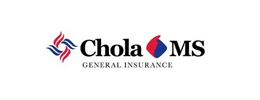Last updated on: September 19, 2025
Many people find it confusing to choose the right health insurance policy due to the overwhelming number of options and complex details involved. This often leads to frustration and fear of not picking the best plan for their needs. The ‘Compare Health Insurance Policy’ feature helps solve these issues by clearly explaining the differences between policies in simple terms. It also allows individuals to see side-by-side comparisons of costs, benefits, and coverage options, making it much easier to identify the policy that offers the best value for them. Additionally, this feature guides users through their decision-making process, ensuring they make informed choices without unnecessary stress.
In 2025, health insurance is no longer a luxury but a real need for every Indian family. Rani and Suresh, a middle-class couple from Pune, knew this too well. Last year, their neighbour had to spend more than 6 lakh rupees for an emergency surgery because he did not have proper medical cover. Recent reports show that over 57 percent of Indian families either have inadequate health insurance or depend only on employer policies, which often fall short during major treatments.
With medical costs expected to rise by at least 12 percent in 2025, comparing health insurance policy options has become a wise step for Indian consumers. Whether you are a salaried worker, self-employed, or taking care of elderly parents, choosing the right health coverage can save your hard-earned savings.
Let us take a simple glance at what this article will cover:
With over 30 private and government health insurance providers in India and hundreds of plan options, picking the right policy can become confusing. Comparing health insurance policies allows you to choose one that best matches your needs and budget. Here is why it is important:
Did you know! In 2025, it became mandatory according to IRDAI that the insurers had to put up claim settlement ratios on their online websites. Whenever selecting a company, it is always advisable to select a company that provides a high claim settlement rate more than 95 percent.
Various families as well as individuals require various types of coverage. Now, look at the types of top the game has to offer and how to juxtapose them.
When you compare, take note of your present health requirements and age. Such as an example, covering parents may require another alternative to having husband wife and kids only.
Many financial experts suggest that you keep a base policy for hospital stays and add a critical illness plan for extra security. Compare whether buying them separately is cheaper and more effective for your family.
Expert Insight: Dr Meera Sharma, a wellness advisor in Delhi, says, “People often forget to check if their plan covers daycare procedures or newer diseases like Covid variants. Always read the inclusions section while comparing.”
You should always compare at least 5 main points in any health insurance plan.
Sensibly compare an extra cover such as a maternity, daycare, or an OPD cover
| Feature | Govt feature plan x | Family plan y | Feature Family plan z |
|---|---|---|---|
| Subjects reached | 2 adults, 2 kids | 2 adults and 2 kids | 2 adults and 3 kids |
| Annual Premiums | 12 000 | 16 500 | 9 200 |
| The limit of the cover | 10, 00, 000 | 15, 00, 000 | 5, 00, 000 |
| Maternity Cover | Yes (1 yr) | Yes (2 yr) | No |
| Room Rent Limit | There is no limit | 2 percent | Standard |
| Wait Pre Existing | 2 years | 3 years | 4 years |
Did you know? In 2025, over 40 percent of family floater buyers preferred adding a top up plan with higher sum insured instead of just increasing their main policy value. This saves yearly premium for young families.
Did you know? The Ayushman Bharat Digital Mission now lets you see if your policy covers telemedicine or home care for common illnesses. Many 2025 policies now add free health check ups too.
These days, nobody has time to go through thick brochures or meet all agents in person. Fincover com and other trusted sites make it easy to compare, choose, and apply for policies.
Expert View: Sunil Menon, a financial planner from Chennai, says, “Comparison portals have changed how Indians purchase health covers. Customers now shortlist better plans and do not get misled easily, as everything is transparent online.”
When it comes to family health plans, it is always about maximum cover at affordable rates.












How could we improve this article?
Written by Prem Anand, a content writer with over 10+ years of experience in the Banking, Financial Services, and Insurance sectors.
Prem Anand is a seasoned content writer with over 10+ years of experience in the Banking, Financial Services, and Insurance sectors. He has a strong command of industry-specific language and compliance regulations. He specializes in writing insightful blog posts, detailed articles, and content that educates and engages the Indian audience.
The content is prepared by thoroughly researching multiple trustworthy sources such as official websites, financial portals, customer reviews, policy documents and IRDAI guidelines. The goal is to bring accurate and reader-friendly insights.
This content is created to help readers make informed decisions. It aims to simplify complex insurance and finance topics so that you can understand your options clearly and take the right steps with confidence. Every article is written keeping transparency, clarity, and trust in mind.
Based on Google's Helpful Content System, this article emphasizes user value, transparency, and accuracy. It incorporates principles of E-E-A-T (Experience, Expertise, Authoritativeness, Trustworthiness).